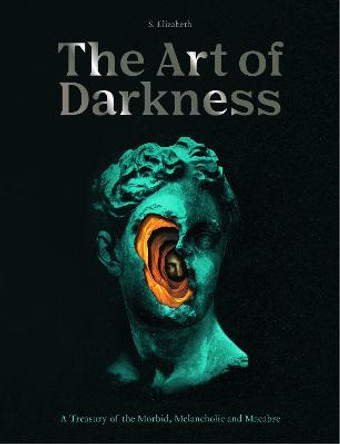Description
In The Dark Side of Genius, Laurinda Dixon examines "melancholia" as a philosophical, medical, and social phenomenon in early modern art. Once considered to have a physical and psychic disorder, the melancholic combined positive aspects of genius and breeding with the negative qualities of depression and obsession. By focusing on four exemplary archetypes-the hermit, lover, scholar, and artist-this study reveals that, despite advances in art and science, the idea of the dispirited intellectual continues to function metaphorically as a locus for society's fears and tensions.
The Dark Side of Genius uniquely identifies allusions to melancholia in works of art that have never before been interpreted in this way. It is also the first book to integrate visual imagery, music, and literature within the social contexts inhabited by the melancholic personality. By labeling themselves as melancholic, artists created and defined a new elite identity; their self-worth did not depend on noble blood or material wealth, but rather on talent and intellect. By manipulating stylistic elements and iconography, artists from Durer to Rembrandt appealed to an early modern audience whose gaze was trained to discern the invisible internal self by means of external appearances and allusions. Today the melancholic persona, crafted in response to the alienating and depersonalizing forces of the modern world, persists as an embodiment of withdrawn, introverted genius.
About the Author
Laurinda S. Dixon is Professor of Art History in the Department of Art and Music Histories at Syracuse University.
Reviews
"Laurinda Dixon brilliantly illuminates melancholy, the dark mental condition, which was both feared and sought by artists and writers in early modern Europe. Her comprehensive history insightfully explores social attitudes about creativity and madness in art, literature, and medicine."
-Jeffrey Chipps Smith,University of Texas at Austin
"The first comprehensive study of melancholia in early modern Europe, The Dark Side of Genius is original and fascinating. Musicologists, gender scholars, religious studies specialists, art historians, and historians of science will benefit greatly from this intriguing and invaluable book. Laurinda Dixon sheds new light on religious melancholia, love melancholia, scholarly melancholy, and artists who are melancholics, and she ends with a discussion of the syndrome's cure. Her book explores many long-neglected texts and images, and it is written clearly, concisely, and in a lively manner. The book, in short, is a pleasure to read."
-Diane Wolfthal,Rice University
"Laurinda Dixon's carefully developed examination of the various types of melancholia establishes the ways in which visual culture appropriated the discourse on melancholy into a wide range of artistic work. Brilliantly incisive and fully interdisciplinary, this book poses new ways of interpreting artworks across the centuries. Readers will be eternally grateful to Dixon for her mastery of a complex theoretical approach and for making it possible to see thematic relationships in a new way. The book is an absolute triumph, combining the erudition of a deeply engaged scholar with the creative imagination of an artist."
-Gabriel P. Weisberg,University of Minnesota
"Today denoting a temporary sadness or state of pensive reflection, melancholy was traditionally understood as a serious affliction of the intellectually gifted, especially religious contemplatives, scholars, and artists. In her comprehensive and well-documented survey, Laurinda Dixon traces the development of melancholy as a medical concept from its origins in ancient Greece and explores its expression in the visual arts with a wealth of illustrations. Dixon also shows how melancholia became a 'stylish disease,' its visual manifestations adopted by frustrated lovers, by Rembrandt and other artists in their self-portraits, and by those who aspired to a comparably privileged status. An epilogue traces the gradual extinction of melancholia as a medical concept in the eighteenth century, and its brief revival by the Romantic artists of the nineteenth. Dixon's fascinating account of melancholia is a major contribution to our understanding of early modern Western culture."
-Walter S. Gibson,Case Western Reserve University
"[The Dark Side of Genius] belongs beside such classic studies of melancholy and the artist, as the works by Raymond Klibansky, Erwin Panofsky, and Fritz Saxl, Saturn and Melancholy: Studies in the History of Natural Philosophy, Religion, and Art (London: Thomas Nelson, 1964) and Rudolf and Margot Wittkower, Born Under Saturn: The Character and Conduct of Artists (New York: Random House, 1963). In addition, the author contributes to the literature on artistic genius. . . .The publisher has produced a handsome volume that will be welcomed and admired not only by art historians but also by visual culturalists. This 'interdisciplinary' study, as the author describes it, will also be of value to historians of music, religion and science."
-Norman E. Land Southeastern College Art Conference Review
"A beautifully illustrated book that goes a long way to proving that iconography is alive and well in the study of Renaissance art history. Dixon deftly traces the visual evolution of the pervasive cultural concept over two millennia through its religious, artistic, philosophical, and scientific manifestations. Her attention to Thomas Burton's Anatomy of Melancholy (1621) and its influence throughout three centuries is a most welcome introduction. Her visual examples (both famous and relatively unknown) are expertly chosen and reflect melancholy by way of its humoral and astrological influences. Focusing on the Western male hermit, scholar, and lover, the text aptly brings to light the fundamental oppositional traits of melancholia-hot and cold, active and passive, light and dark, etc.-that course through both the artistic genius and the lonely sufferer who falls under the planetary influence of Saturn. Dixon has done an impressive amount of research, even looking at all the medical dissertations on the pathology of melancholia written throughout Europe over two or three centuries. The book is chock-full of interesting and remedial tidbits, such as what animals (owls, swans, stags, cats, and dogs) were viewed as 'carriers,' why tobacco intensified melancholy's effects, and why white wine (and not red) could be used as an antidote, as well as different herbal remedies, music (especially that of Orpheus's lyre and David's harp), God-like thoughts, certain colors and foods, physical exercise outdoors in the sun, and, not least, lovemaking."
-Michael Ann Holly Renaissance Quarterly
"[The]Dark Side of Genius is essentially an art history, and is lavishly illustrated. . . . This is a coffee-table book and much more: a pleasure to own as a real book rather than as an e-book, as well as excellent in its scholarship and style. It brings us to a better understanding of the notion that, as Laurinda Dixon states in the final sentence, 'to be accepted as a genius, one must look the part.' . . . We are not surprised to find that the discourses of melancholy and genius had their own related visual codes in the early modern period, but what Dixon does so well is to bring a new depth and range to existing art-historical studies, the most important of which remains Saturn and Melancholy by Klibansky, Panofsky, and Saxl (1964).
". . . If one has an interest in early modern melancholy, one should buy this book, and not just for the illustrations. Dixon sheds new light on both familiar and unfamiliar images and texts, and in doing so has provided a thing of beauty for the modern researcher, unwittingly giving us a new treatment for our own 'professorial melancholia.'"
-Clark Lawlor Bulletin of the History of Medicine
"Dixon's Dark Side of Genius is, without hyperbole, a work of some genius. Full of well-written prose and careful conclusions, the book exists at the intersection of a few different disciplines, among which history of medicine looms large. Scholars of almost any discipline, who have interests in the body, its illnesses, and its composition, will find something here to reward them."
-Will Rogers H-Disability
"It is truly a thought-provoking image, which only serves to entice the reader further into Dixon's work. The Dark Side of Genius effortlessly transcends disciplinary boundaries, bypassing the long-established 'isolation' of disciplines who 'take little notice of one another', despite the vast 'historical and cultural importance of melancholia ... across the broad scholarly spectrum' (p. 4). This approach solidifies the book's broad applications to a variety of disciplines, upholding the true, 'universal' nature of melancholia itself."
-Patricia Alessi Parergon
"The blend of medical, literary, and art-historical learning and lore underpinning Dixon's analysis of this topic is typical of the interdisciplinary erudition demonstrated in this lucid and engaging study."
-Stephanie S. Dickey CAA.Reviews
Book Information
ISBN 9780271059358
Author Laurinda S. Dixon
Format Hardback
Page Count 264
Imprint Pennsylvania State University Press
Publisher Pennsylvania State University Press
Weight(grams) 1429g
Dimensions(mm) 254mm * 229mm * 25mm







